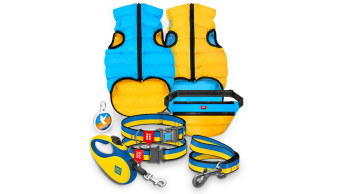

In Asia and the USA, marine aquariums enjoy a high status. The hobby is in demand. European aquarists can only dream of such a situation.
Why do marine aquariums continue to languish in the shadows in Europe, accounting for less than 10 per cent of sales in the aquatics segment as a whole? There are various reasons.Anyone wishing to acquire a marine aquarium has to pay considerably more for it than it would cost simply to settle for a freshwater tank. The equipment required for a fully functional marine aquarium (protein skimmers, recirculation systems, adequate lighting etc.) is also substantially more expensive and presupposes greater expertise than the average aquarium with a few fish that are easy to look after.Would-be marine aquarium hobbyists have to invest so much that they aren't likely to give up again instantly after the first failed attempt, on account of the high procurement costs. For many new hobbyists, this is a major handicap. They are scared of not being up to the demands made on them. Better to get a small, easy freshwater tank, which can quickly be disposed of again if it doesn't work - that is how many newcomers to fishkeeping think.Added to this are the comparatively high energy costs incurred in maintaining marine aquariums. At a time in which energy prices are rising year on year, a hobby like marine aquariums, which consume a lot of energy, is not terribly popular with consumers, therefore. Even new developments by the industry that focus on energy reduction can do little to change this situation.The need for specialist staff and the high energy costs of marine aquariums are another reason why these aquariums continue to be the Cinderella of the pet supplies trade in Germany, France, Scandinavia and many other European countries. For the most part it is specialist stores that deal in marine aquariums; the big chains mostly shy away from them.The situation is completely different in the UK and the Nether-lands, however. Here consumers who want a miniature marine landscape in their living room aren't deterred so easily. Compared with other European countries, the range of species and products on offer for marine aquariums is also much greater, according to experts in the segment.The sector expects to see an upturn in marine aquatics in eastern Europe in the next few years. Consumers in Poland, the Czech Republic and the Baltic states have shown a keen interest in fish in the past, and since fish breeding is widespread in these countries, the availability of species is guaranteed.Fish caught in the wild predominateWith regard to fish species, most fish sold by pet…
Related articles
Read also

 Menü
Menü






 Special issue 12/2010
Special issue 12/2010












 Newsletter
Newsletter